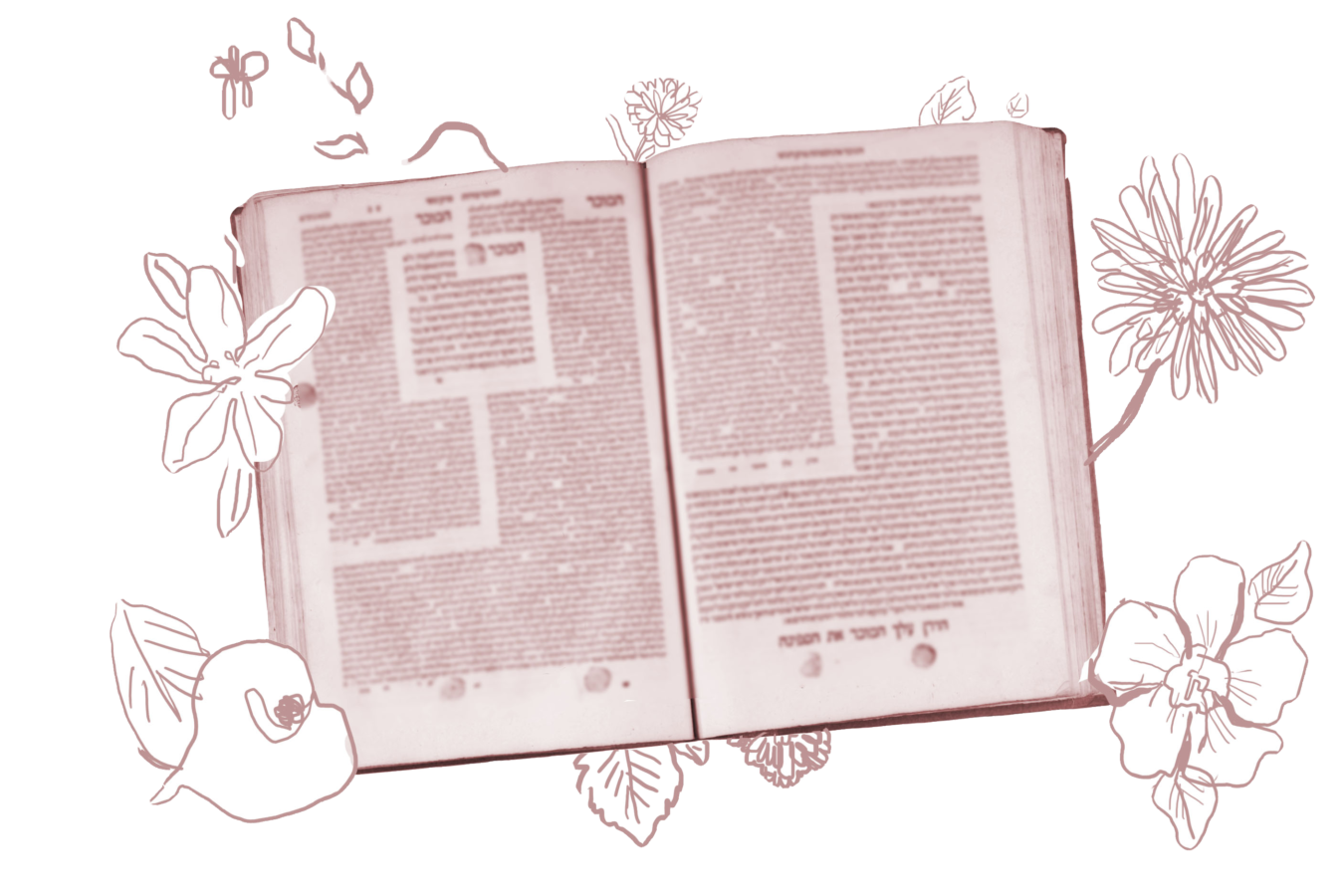In discussing the ways that we mark Shabbat as different with the fullness of our bodies — the clothes we wear, the words we speak and even the ways that we walk — today’s daf digresses into a discourse of praise for the biblical Ruth.
Ruth was a Moabite who developed a fierce loyalty to her Israelite mother-in-law Naomi, a loyalty undiminished by the untimely death of her Israelite husband. Once widowed, Ruth followed Naomi back to the land of Israel and not only took care of the older woman, but also adopted Israelite religion and customs. Ruth ultimately remarried and became the great-grandmother of one of Israel’s most esteemed rulers, King David. Throughout Jewish history, Ruth has been upheld as a paragon of goodness and loyalty, and a model for Jewish conversion.
The daf’s focus on Ruth begins by citing her care in dressing as a model for how we should attire ourselves on Shabbat. After receiving an entire season of generosity at the hands of a kind man named Boaz, Ruth’s mother-in-law Naomi suggests that she dress herself up to go meet him for a more romantic purpose: And you shall bathe, and anoint yourself, and put on your robes. (Ruth 3:3) As Rabbi Elazar explains on today’s page: These robes are Shabbat garments. But he takes quite a bit more than sartorial advice from this remarkable woman. Though Naomi instructed her daughter-in-law to dress and then go meet her future husband, Rabbi Elazar’s close reading of the biblical text shows that Ruth alters the order — first going to the meeting point, and only then dressing herself for the encounter. For Rabbi Elazar, this is a sign of her estimable modesty.
The Gemara goes on to highlight other ways in which Ruth displays various virtues, including wisdom and adherence to rabbinic law. But it gets even better. Three competing rabbinic interpretations of a single verse, Ruth 2:14 (which describes Ruth sitting down to lunch with her future husband), heap wider and wider praise on this remarkable woman whose righteousness becomes a credit to the entire Israelite nation, with sweeping historical reach:
And he gave her roasted grain and she ate and she was satisfied and she left some over. (Ruth 2:14) Rabbi Elazar said: And she ate was fulfilled by her children’s children in the days of David; and she was satiated was fulfilled in the days of Solomon; and she left some over was fulfilled in the days of Hezekiah.
And some say: And she ate was fulfilled in the days of David and Solomon; and she was satiated was fulfilled in the days of Hezekiah; and she left some over was fulfilled in the days of Rabbi Yehuda HaNasi. As the Master said: Rabbi Yehuda HaNasi’s horsekeeper was richer than the king of Persia.
It was taught: And she ate in this world; and she was satiated in the days of the Messiah; and she left some over in the future, at the end of days.
This one verse inspires the rabbis to imagine that Ruth’s actions have brought merit and good fortune to the Israelite nation over the entire span of Jewish history, from the glory days of kings David and Solomon, to the rabbinic flourishing in the Roman period, and even into the Messianic era and beyond.
All the while, in the Hebrew Bible, Ruth is habitually referred to with an outsider epithet: Moabite, even after she has sworn loyalty to the God and people of Israel. She is, as biblical scholar Dr. Gale Yee has it, a “perpetual foreigner.”
On today’s daf Ruth is both repeatedly marked as foreign and the embodiment of Judaism. If Ruth can embody Jewish ideals and bestow blessing on all of Jewish history without losing her original identity, perhaps what we are being offered today is a different rabbinic understanding of conversion — one in which the convert is both entirely Jewish and still closely, proudly identified with her previous people. Identity is complex, and that complexity is powerful.
Read all of Shabbat 113 on Sefaria.
This piece originally appeared in a My Jewish Learning Daf Yomi email newsletter sent on June 27, 2020. If you are interested in receiving the newsletter, sign up here.



